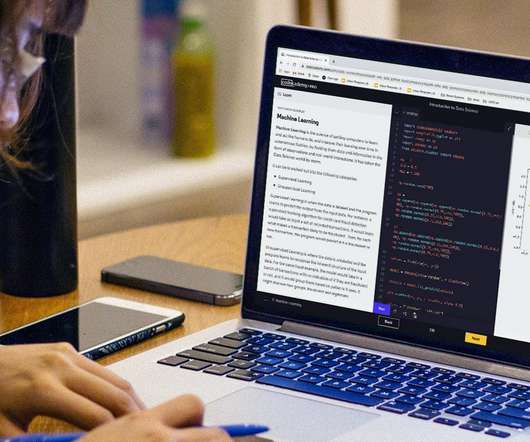Codecademy, an Early (and Now Profitable) Pioneer of Coding Education, Raises $40M in New Funding
Edsurge
FEBRUARY 23, 2021
Founded in 2011, the New York-based company has built a hugely popular training platform that has helped millions of students learn to code over the last decade. But the New York-based company had already served 45 million students in more than 190 countries before the pandemic hit. “We A sample project in Codecademy.















Let's personalize your content